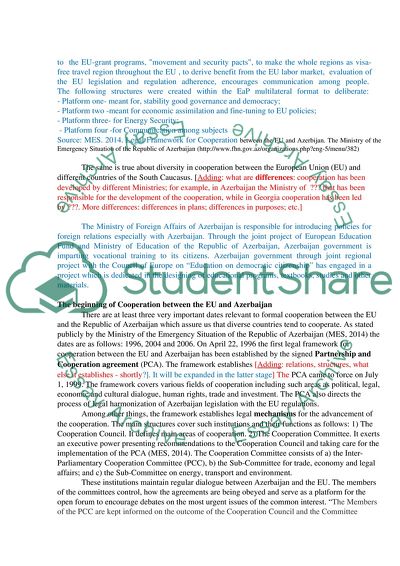Cite this document
(EU and South Caucasus Challenges and Actions for Cooperation Research Proposal Example | Topics and Well Written Essays - 2500 words, n.d.)
EU and South Caucasus Challenges and Actions for Cooperation Research Proposal Example | Topics and Well Written Essays - 2500 words. https://studentshare.org/politics/1853733-eu-and-south-caucasus-challenges-and-actions-for-cooperation-case-of-azerbaijan
EU and South Caucasus Challenges and Actions for Cooperation Research Proposal Example | Topics and Well Written Essays - 2500 words. https://studentshare.org/politics/1853733-eu-and-south-caucasus-challenges-and-actions-for-cooperation-case-of-azerbaijan
(EU and South Caucasus Challenges and Actions for Cooperation Research Proposal Example | Topics and Well Written Essays - 2500 Words)
EU and South Caucasus Challenges and Actions for Cooperation Research Proposal Example | Topics and Well Written Essays - 2500 Words. https://studentshare.org/politics/1853733-eu-and-south-caucasus-challenges-and-actions-for-cooperation-case-of-azerbaijan.
EU and South Caucasus Challenges and Actions for Cooperation Research Proposal Example | Topics and Well Written Essays - 2500 Words. https://studentshare.org/politics/1853733-eu-and-south-caucasus-challenges-and-actions-for-cooperation-case-of-azerbaijan.
“EU and South Caucasus Challenges and Actions for Cooperation Research Proposal Example | Topics and Well Written Essays - 2500 Words”. https://studentshare.org/politics/1853733-eu-and-south-caucasus-challenges-and-actions-for-cooperation-case-of-azerbaijan.


